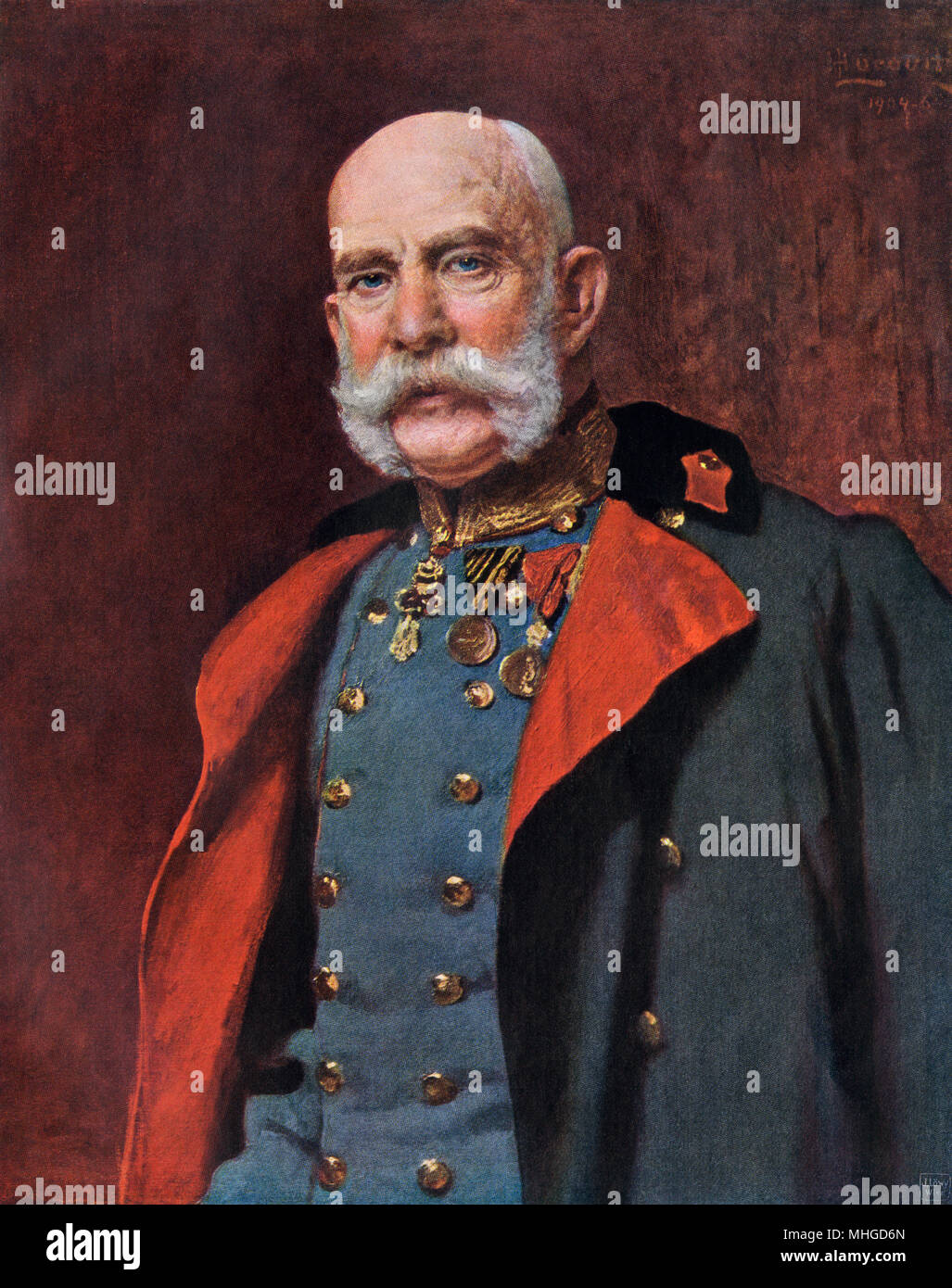
His brother, Maximilian, was executed in Mexico. Early on as Emperor he lost major wars to France (1848) and Prussia (1866). Emperor and King, still his life was not without its trials and sorrows. By 1914 he rarely left his palaces but it was not out of fear of assassination. This can be attributed to the above average standard of living that his subjects enjoyed. Despite these political beliefs he was immensely popular among all the various national groups that comprised his kingdom. It has been said that he was "the last monarch of the old school". Franz Josef was sensitive to these losses and was determined not to allow further decay of the empire by losing Austro-Hungarian holdings in the Balkans to Serbia. The aging monarch had seen the Habsburg Empire lose its holdings in both Italy and Germany until it had become mainly an eastern European power.

This worked and the Dual Monarchy would last until his death in 1916. He was also crowned King of Hungary in 1867 in an attempt to calm the situation with the problematic Magyars (Hungarians). By the summer of 1914 he would be in the 66th year of his reign.

Marriage (with Princess Elisabeth Of Bavaria) - Vienna, Austriaĭeath - Schonbrunn Palace, Vienna, Austriaįranz Josef was crowned Emperor of Austria in 1848 at age 18.


Comprising 52 million inhabitants speaking more than a dozen languages.įranz Joseph survived 150 Monarchs of his era. To commemorate this occasion, there are various exhibitions and publications, offering a glimpse into the sunken world of the monarchy, during which time Austria became the second largest country in Europe, following the Kingdom of Russia.The double kingdom of Austria-Hungary had been a very cosmopolitan state since 1867, covering an area from Krakau and Lemberg to the Adriatic. Franz Joseph was born in 1830, became Emperor at the age of 18 and remained as such until his death on 21 November, 1916. The Emperor Franz Joseph I, Emperor of Austria and King of Hungary, passed away one hundred years ago.


 0 kommentar(er)
0 kommentar(er)
